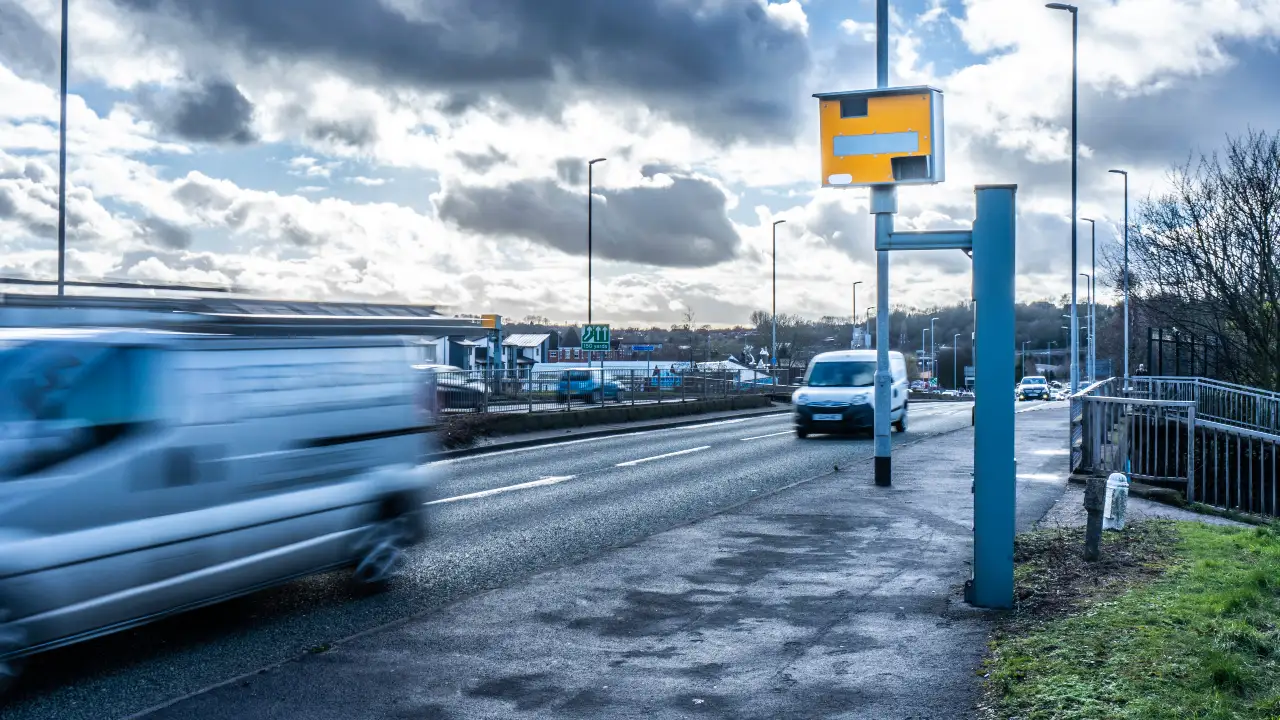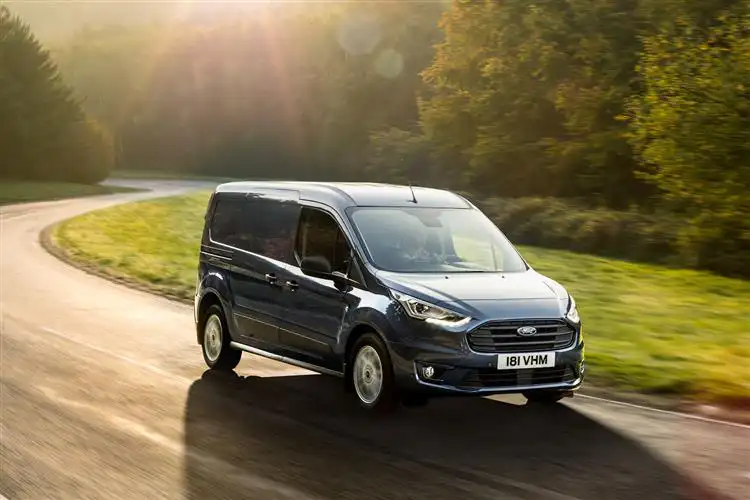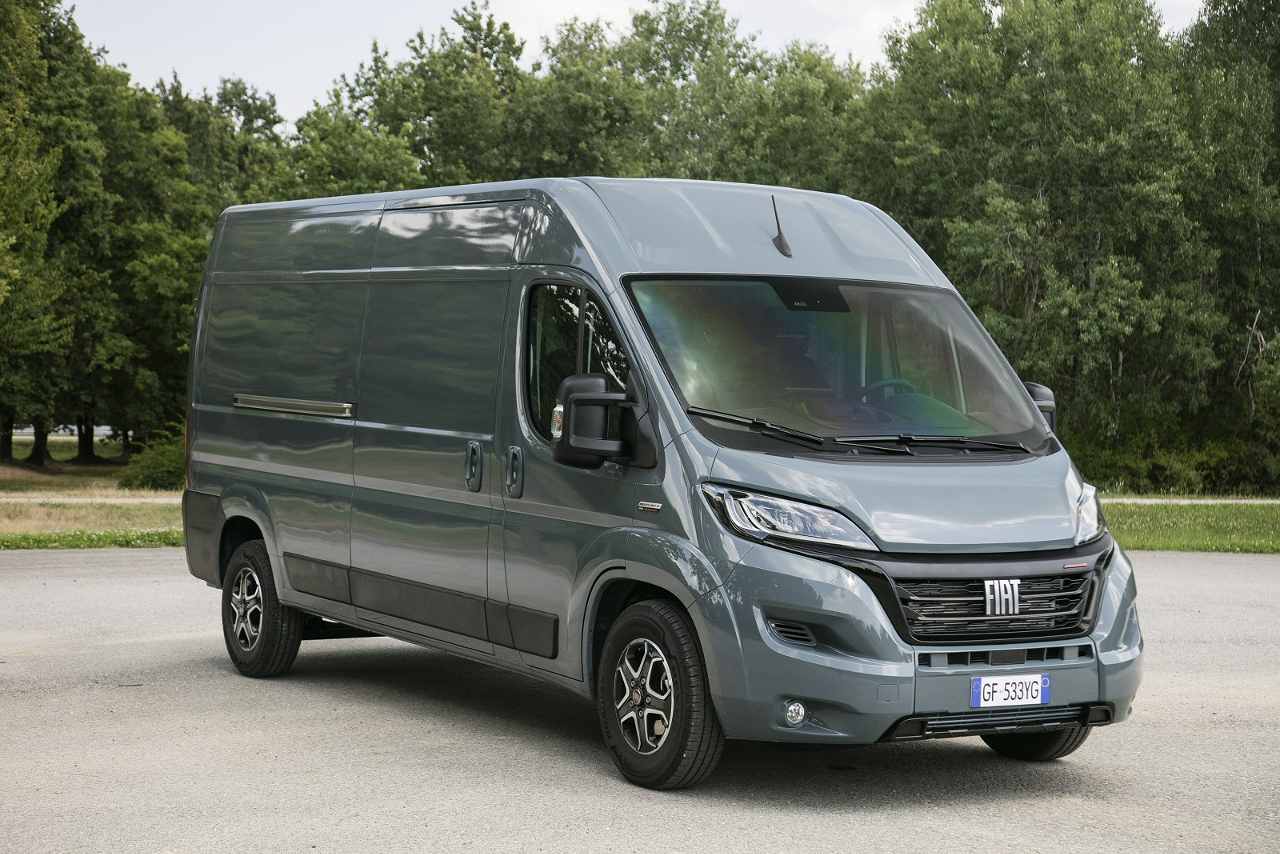Plenty of people assume that the speed limits on our roads are no different for vans, but they’d be mistaken. When you consider vans, fully laden (especially at 3.5 tonnes), handle and stop completely differently to a family SUV, for example. Pickups are also treated separately, and it’s vital that drivers know what limits apply for the roads they are using as they differ depending on type. Sadly, ignorance isn't an excuse in the eyes of the law and it’s the responsibility of a driver to comply with regulations and not rely on his or her employer to educate them. We’re primarily looking at speed limits that apply to commercial vehicles up to 3.5t GVM (Gross Vehicle Mass). If you operate a van at a higher weight, different rules may apply.
What Is The National Speed Limit For Vans?
All conventional vans up to 3.5t GVM (Gross Vehicle Mass) are covered by the same national speed limits. The 30mph limit we are familiar with is the same as for passenger cars. The limit on single carriageways, 60mph in a car, is reduced by 10mph to 50mph for vans, as is the 70mph dual carriageway limit, becoming 60mph for those driving a van. The 70mph motorway limit is the same for cars and vans.
If you drive a car-derived van (for example a Vauxhall Corsa or a Ford Fiesta) the speed limits are the same as those for a car - for example, 70mph on a dual carriageway.
Double cab pickups, such as the Ford Ranger or Toyota Hilux, can also have speed limits which are different to those that apply to cars. They’re classed as ‘dual purpose’ vehicles, because they can carry goods as well as passengers. If the unladen weight is above 2040kg then the same limits as those that apply to vans need to be observed. If the truck is below that weight, then car limits are applicable.
VANS
-
Built-up areas : 30mph
-
Single carriageways : 50mph
-
Dual carriageways : 60mph
-
Motorways : 70mph
And, here are the speed limits for cars:
CARS
- Built-up areas : 30mph
-Single carriageway : 60mph
-
Dual carriageway : 70mph
-
Motorway : 70mph
What Are Locally-Set Speed Limits?
Local authorities are, subject to government guidance, allowed to set their own speed limits on a local basis if justified for reasons such as safety in residential streets, or outside schools. Typically, these may be set at 20mph and will usually apply to all vehicles.
What Is The Speed Limit For A Van That Is Towing?
There’s one single set of rules for any car, van or pick up towing a trailer. Whatever other limit applies to your vehicle, you cannot exceed 60mph on dual carriageways or motorways when towing any sort of trailer. Our guide here has everything you need to know about towing with a van.
What Is The Speed Limit For Vehicles Over 3.5 Tonnes?
For those heavier vans such as a 5000kg Mercedes-Benz Sprinter, and any van up to 7499kg GVM, you’ll need to observe the same limits that apply to lighter van users, except for when driving on motorways where you are restricted to 60mph.
What Is A Speed Limiter?
A speed limiter is an electronic device which restricts a van from exceeding a preset speed. This can be set by the driver, or in some cases by the manufacturer or dealer, ensuring that the driver will not incur a speeding penalty. Some electric vans have a preset speed limiter to optimise the range the van can travel between charges.
Some vehicles will automatically apply brakes when the van is travelling down a steep hill to ensure that the preset speed isn’t exceeded. Others may offer the driver a visual reminder that the van has crept above the selected figure and manual intervention (i.e. braking) is required.
Van Speed Limit FAQs
Are vans limited to 60mph?
No, generally speaking, vans with a GVM of 3500kg or below can travel at 70mph on motorways providing they are not towing a trailer.
Can vans drive at 70mph on a dual carriageway?
No. The limit is 60mph unless the van is car-derived.
What is the average fine for breaking van speed limits?
Fines vary depending on the severity of the offence, but the driver may have the amount partially based on their level of income. Most of the less serious offences are punishable by a £100 fixed penalty fine.
How many points will I get points on my licence for breaking the van speed limit?
If treated as a fixed penalty offence, 3 points is the minimum. If you are concerned about driving a van with points on your license read our in-depth article for more information.
What is a dual purpose vehicle and are the limits the same as vans?
An example of a dual purpose vehicle is a double cab pickup, like the Toyota Hilux. Providing the truck has a GVM of 2040kgs or under, car speed limits apply. If over, then the speed restrictions that apply to vans are used.
Is it safe to rely on my satnav or in van display for the current speed limit?
No. Many sat navs have out-of-date data and may well display the car speed limit rather than that for a van.
Check out the Vanarama van blog for more news and insights from our team of Van Experts, or head to our van leasing deals page for fantastic lease offers.





